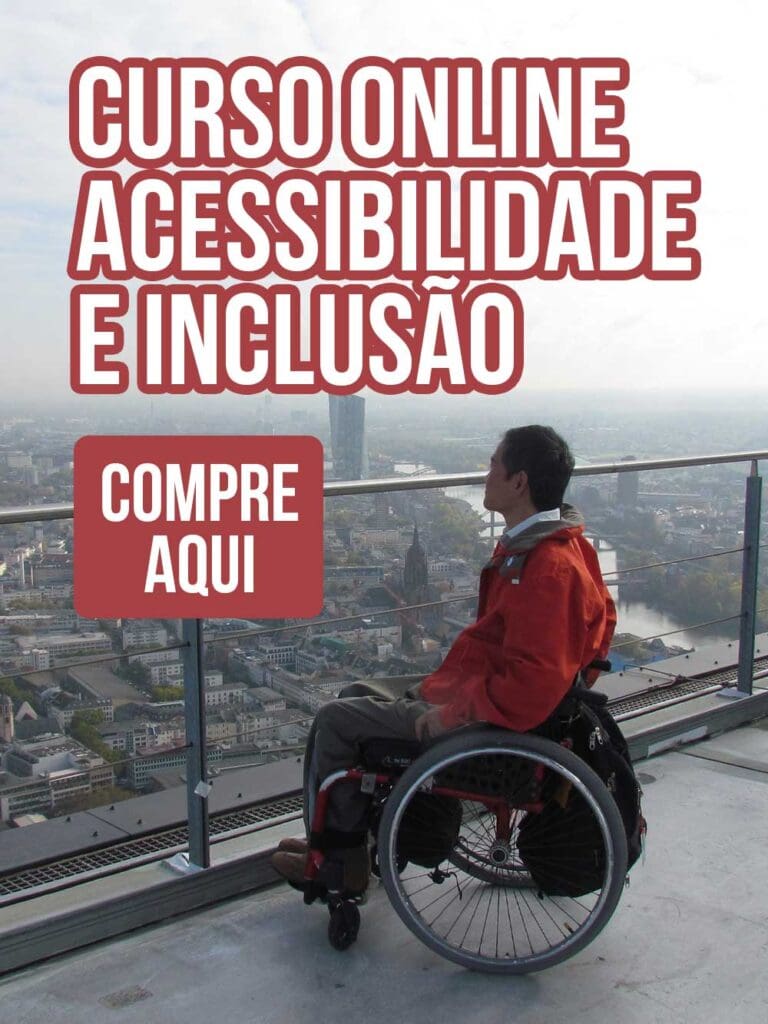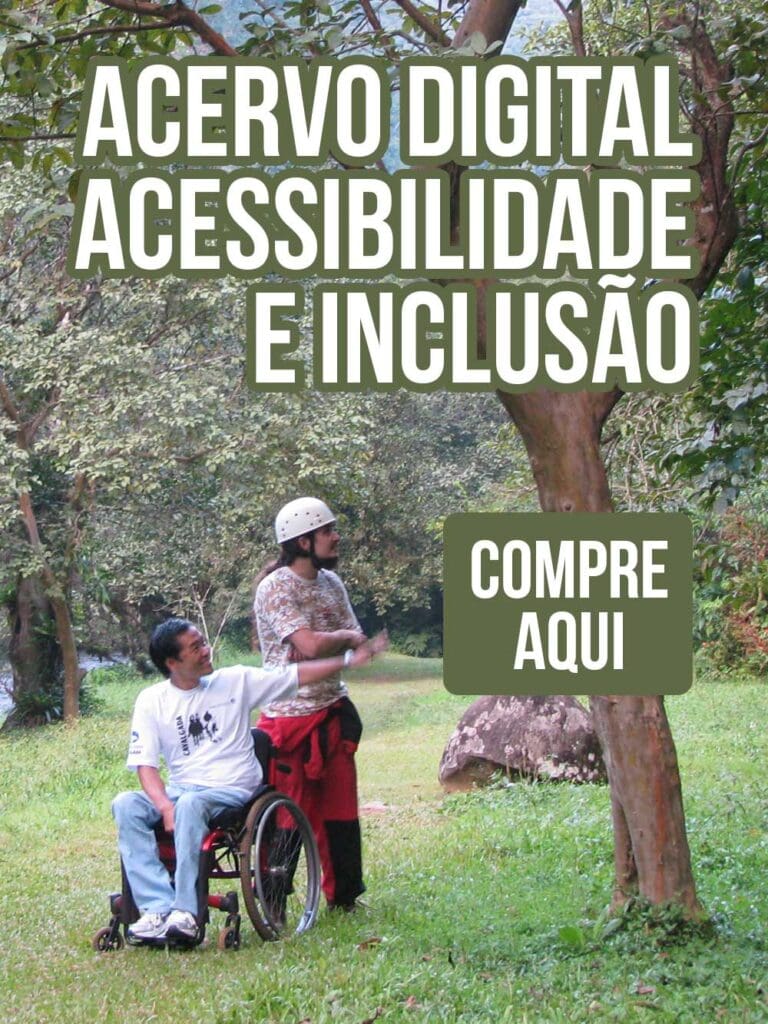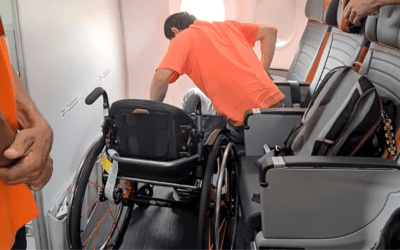
Impaired travellers: Disabled travellers
The market for accessible tourism has grown significantly in recent times, and with a globally ageing population, it is likely that more and more people will enter into this market as time goes on. People with physical disabilities no longer have to live a life that is limited in terms of the holidays they would like to take – the recent Paralympic Games, for example, has demonstrated that no matter what challenges life throws at people, amazing things can still be achieved, and a disability does not have to be a barrier to incredible experiences.
Market potential
According to an estimate based on the 2014 EU Study Economic Impact and Travel Patterns of Accessible Tourism in Europe, accessible travel is thought to account for around 12 per cent of the market. The United Nations World Tourism Organization (UNWTO) says that the accessible travel market presents ‘a golden opportunity’ for destinations that are ready to receive these visitors, since they tend to travel more frequently during the low season, usually accompanied or in groups. This could also arguably be appealing for insurers – by travelling accompanied, an insurer will always be able to have some level of control over where a traveller is taken should they fall ill or be injured, as they can get in direct contact with the guide; and travelling in groups is also safer for the traveller. “Facilitating travel for people with disabilities is therefore not only a human rights imperative,” states the UNWTO in its Good Practices in the Accessible Tourism Supply Chain ethics document, published in September 2016, “but also an exceptional business opportunity.”
The Bahamas is the latest destination to follow the recommendations of the UNWTO, hosting a symposium on accessible travel, and its government has created a department catering for people with disabilities – small but important first steps.
Cruising, always popular with older travellers, is also an important niche for the disabled travel market. Most ships will have ramps wide enough for wheelchair users to easily board and disembark, and wheelchair accessible rooms are commonly available. While there may be some limitations on the practicalities of travel for physically disabled people, the list of places they can go, and activities in which they can take part, continues to grow. But has the insurance available for disabled travellers matched this pace of change?
Cover development
ITIJ spoke to Chris Blackman, product development consultant for UK-based AllClear Insurance, about his company’s offering to the market. “AllClear has provided travel insurance to the disabled traveller right from the beginning of our existence back in 2000,” he said. “However, what we have done more recently is to specifically define an AllClear Travel Policy for the Disabled Traveller, providing additional guidance and information about travelling with a disability. For example, highlighting the assistance which, by law, must be provided by carriers and tour operators to disabled travellers, whether they are sight or hearing impaired, have mobility difficulties, or indeed have any disability which requires special assistance.” In the UK, under the Equality Act of 2010 (formerly the Disability Discrimination Act 2005 and 1995 DDA), it is illegal to discriminate against people with disabilities (by way of charging higher premiums or declining cover) unless it can be shown actuarially that the cost of providing that service is materially greater than for someone without the disability. Blackman continued: “Travel insurance providers are therefore bound by law to provide cover unless there are other considerations such as significant or ongoing medical conditions in addition to the disability.”
In-depth information
When it comes to the medical screening of travellers who have some form of disability, it can be the case that unless they are suffering from a pre-existing medical condition that they have to declare, such as angina or cancer, then the insurer won’t even be aware that they are covering a disabled traveller. Blackman of AllClear pointed out: “Travellers who have some form of disability may not necessarily represent a higher risk to the insurer.” This is, of course, dependent on the type of condition from which the person is suffering. “Mobility difficulties such as paraplegia, pressure sores and urinary tract infections are the most common [risks],” explained Blackman. “We therefore seek to assess how stable or well controlled their condition is and how well [it] is managed on a day-to-day basis at home. This is done by taking them through a couple of medical screening questions and this allows us to arrive at an appropriate premium commensurate with the risk.”
ITIJ also spoke to Craig Morrison, chief executive of Southern Cross Travel Insurance (SCTI), which provides cover in New Zealand and Australia, where there is no disability discrimination law. He said: “In SCTI’s view, a ‘handicap’ or a disability is just another type of pre-existing condition. We don’t make any special exceptions for this. So long as there is no disability relating to heart, lung, vascular, or Diabetes T2, then the insured is not required to declare the disability – but then of course there’s no cover for it.” On the other hand, he continued, ‘a person with a disability seeking cover can declare it on our online medical assessment, as part of the application process’. “Depending on what it is, the outcome could be: covered, but an additional medical premium is due. If the insured pays this additional medical premium, then they have cover for unexpected events relating to the disability. If the insured does not pay it, then like above, there’s no cover.”
The pricing of policies is about risk assessment and claims levels, and while the assessment can take place and be reasonably predicted, claims levels are often less predictable. As with any travel insurance customer, claims from disabled travellers vary dramatically. Blackman told ITIJ: “Generally, those who have a disability which they cope well with and do not require medical intervention for at home, do not have problems whilst travelling. Those with more complex conditions which do require occasional medical referral at home, can have unplanned insured events whilst abroad but we do aim to take account of these in our medical risk assessment and screening, so the additional premium charged across that specific group of disabled travellers hopefully covers the additional claims costs.”
Expatriates
Of course, it is not just short-term leisure travellers that are going to need insurance; longer-term travellers and globally mobile employees also need cover for any disabilities. ITIJ spoke to Andrew Apps, head of global healthcare for international private medical insurance (IPMI) broker Bellwood Prestbury, about the issue of providing IPMI for disabled or chronically unwell employees. He said that being able to provide cover for disabled employees is perhaps one of the most difficult risks to navigate, given that such policies are predominantly designed to cover unexpected acute illness and injury rather than known pre-existing medical conditions. “As a specialist intermediary,” he said, “we are increasingly being asked to source cover for employees with disabilities such as MS and Down Syndrome, but invariably insurers either exclude cover for any treatment associated to the disability concerned or, in some instances, decline cover altogether. While most policies have evolved over the past few years to provide some level of chronic and long-term protection, this is really geared to conditions occurring after the policy has incepted rather than before.”
Inevitably, the price of policies rises when serious conditions are included, but it was surprising to find out that the price will go up significantly even when the condition under scrutiny may be excluded from the policy, as Apps explained: “Where some degree of cover is offered – and which is usually restricted to minor disabilities – premium surcharges can be significant, with many underwriters quoting figures averaging 75 per cent of the original premium or higher. The difficulty is one of ‘how to assess a disability’ and in turn to know ‘what premium to charge’ for what is in reality no longer an insurance matter but one of health maintenance. Very minor ailments can often be accommodated under large claims related programmes, as in effect, future premiums are based on the claims profile of the group. But for SMEs’ employer groups, the ability to vary premiums does not (or rarely) exists.”
Could try harder?
As Apps says, much remains to be done by the insurance industry to meet the needs of disabled travellers and globally mobile employees. He told ITIJ: “There is clearly room for improvement, and [this] requires greater dialogue between underwriters, providers and specialist intermediaries. While by its very definition insurance is about covering the ‘unexpected’, there needs to be greater flexibility as to what can and cannot be covered rather than what is seen all too often as a blanket ‘no’.” IPMI is not designed to be a replacement for state-sponsored healthcare systems, he added, but the very fact that many treatment plans for those with disabilities can be pre-calculated should point the way to a wider acceptance of what can and cannot be covered: “Premiums will of course need to reflect this, but surely the option ought to at least be available.”
invariably insurers either exclude cover for any treatment associated to the disability concerned
With the right systems in place, it is possible to assess risk accurately and price policies accordingly, as Blackman of AllClear concluded: “AllClear does conduct a high degree of claims analysis and adjusts the risk rating and hence premium charged to take account of claims costs across a wide variety of customer profiles. These profiles include age, type and severity of medical condition(s) declared, along with destination and trip duration. While disability in itself is not a customer profile we examine in isolation, AllClear does look for patterns across medical conditions and those medical conditions normally associated with a disability of some kind do not seem to be out of line with any other medical claims.”
Morrison of SCTI made a valid point addressing the difficulties for insurers that wish to provide cover for disabled travellers: “There is a vast range of complexities [surrounding] what might go wrong, the effects of long-haul travel on the disability, the destination, the cost of healthcare. Every disability, like every pre-existing health condition, needs to be assessed on a case-by-case basis.
Source:ITIJ
Compartilhe
Use os ícones flutuantes na borda lateral esquerda desta página
Siga-nos!
Envolva-se em nosso conteúdo, seus comentários são bem-vindos!
1 Comentário
Enviar um comentário
Você precisa fazer o login para publicar um comentário.
Artigos relacionados
Acessibilidade no transporte aéreo. Atualização das regras.
Acessibilidade no transporte aéreo. Revisão da Resolução nº 280/2013 da ANAC através de consulta e audiência pública.
Inclusão no filme Wicked. Atriz cadeirante chama a atenção.
Inclusão no filme Wicked. Marissa Bode é uma atriz com deficiência na vida real, e sua deficiência não foi um impedimento para a atuação.
Diretrizes da ANPTUR para o Turismo Brasileiro
Diretrizes da ANPTUR para o Turismo Brasileiro. Acessibilidade é um dos capítulos desse importante guia orientador para o turismo.






It’s great to see others who aren’t hindered by disabilities. I may not be hindered everyday but at least whilst traveling I have had serious seizures, once ending up in hospital in India…now I can look back yes it’s funny! But I often used to hide it from others, now though after seeing others why should I? Thank you for writing this